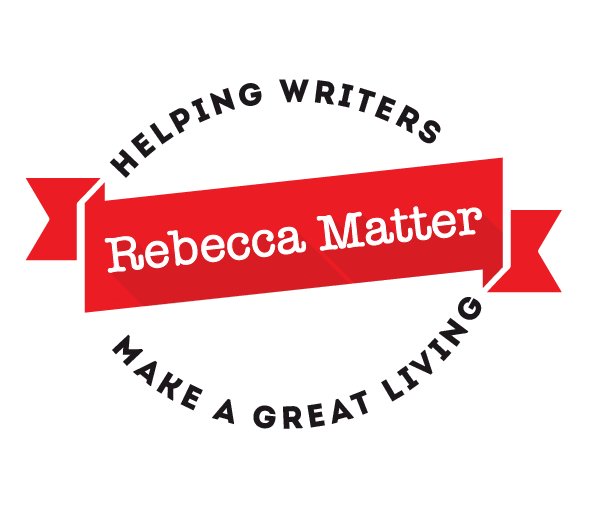Do your clients like working with you?
Are you the person they call first when a new project comes up?
If so, in addition to being a good writer, you’re probably easy to work with.
As a marketer, I can tell you firsthand, that alone can often be the determining factor in whether you get future projects or not.
With aggressive goals and tight deadlines, marketers simply don’t want to work with writers who make their job more difficult.
So today, I’m going to give you some best practices you should follow when working with clients, to ensure they call you with their next project.
First up, keep communication short and sweet
Just like you, your client is busy, and doesn’t have a lot of extra time to listen to long voicemails or read emails that go on and on.
By keeping your communication efforts as brief as possible, you’ll demonstrate to our client that you respect their time.
And by getting to the point faster, you’ll be more likely to get what you want or need. If I have to search for the point, there’s a good chance I’ll miss it and simply move on.
Include a complete signature file in all correspondence
Your client most likely gets a lot of emails every day, so don’t assume she knows who you are. Every time you email a client, include your full name, address, phone number, fax, and email address.
Your signature file may look something like this:
Rebecca Matter, SEO Copywriter and Web Strategist
245 NE 4th Avenue, Suite 102
Delray Beach, FL 33483
Tel: 561-278-5557
Fax: 561-278-5929
Email: rebeccamatter@companyname.com
Keep all deadlines
I can’t stress this point enough – it’s important that you respect your client’s schedule. Often times, there is a lot of money and other people’s time that can be impacted when you’re late.
Trust me … there is nothing that will hurt your reputation with a client more than missing a deadline. But there’s actually a deeper lesson here, too …
Don’t make deadlines you cannot keep. If you’ve agreed to submit copy in two weeks, it must be there in two weeks. Remember, your client’s business is depending on it.
Don’t complain
Okay, you’ve had the flu. Your dog ran away. Your computer crashed. And the weather’s been awful. We all go through bad times. But save the complaining for your friends, and not your clients. It’s important that you keep all contact with them professional and positive.
Provide suggestions for improvement
Let’s say you’ve seen a landing page that your client is using on his website. You can tell it’s awful, and you know how to improve its conversion rate.
Rather than criticizing the page, try offering a few suggestions to increase response. In other words, show him why he should hire you!
You don’t need to give it all away – just a taste.
Follow up only within reason
You’re eager to hear your client’s reaction to the copy you submitted … or to get a response to your proposal. Just remember, your client is probably very busy.
And while it’s good to keep him focused, you don’t want to irritate him with excessive emails or calls. Keep your follow-ups limited, professional, and to the point.
Ask questions only when necessary
You need a lot of information in order to do a good job on your assignment, but try to get as many questions as possible answered during your creative calls with the client.
If important questions come up along the way, don’t hesitate to email the client. But make sure the answer to the question can’t be found elsewhere (like in the research you’re supposed to be doing).
Save the entire email thread
When emailing back and forth about a particular problem or question, use the “Reply” button. When you do that, all the relevant emails between the two of you are included in the message.
This keeps the client from having to hunt through hundreds of emails to figure out what you’re talking about.
Submit your best work
It can be tempting to submit mediocre copy when up against a deadline, because you know you’ll have a second draft to get it right. But all you’re doing is wasting your client’s time.
And not only will she know what you’re doing, she’ll remember it when considering whether or not to work with you again.
Your second draft should be focused on improving your best work. So don’t submit anything but.
Take feedback and criticism
In the end, you want your copy to be the best it can possibly be. So, take all feedback given to you by the client into consideration, and determine what’s best for the copy.
We all fall in love with a headline, lead, or big idea from time to time. But sometimes, you’ll have to say goodbye in order to ultimately make the copy stronger.
Closing thoughts …
Marketers love copywriters who are easy to work with. By following these best practices to keep them happy, you can rest assured that your first project won’t be your last.

Keep up the good work, I like your writing.
Splendid article! Just what I’ve being scouring the internet for.And I recommend it to anyone who want to retain clients…Please,keep it up!
Thank you Ignatius! I’m glad this “best practices” article was useful for you.
I’m not quite sure how to say this; you made it exetlmrey easy for me!
Thank you, this is exactly what I was looking for!
I just happen to came across onto this blog and it is a good read, a little on the long end but pretty satisfactory one.
Very helpful article!
I appreciate if you have any sample email to share regarding this article.
Thank you.
Gaurav Sarathe